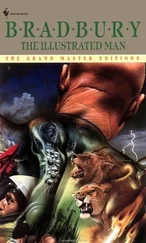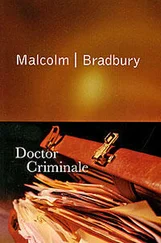Malcolm Bradbury - The History Man
Здесь есть возможность читать онлайн «Malcolm Bradbury - The History Man» весь текст электронной книги совершенно бесплатно (целиком полную версию без сокращений). В некоторых случаях можно слушать аудио, скачать через торрент в формате fb2 и присутствует краткое содержание. Жанр: Современная проза, на английском языке. Описание произведения, (предисловие) а так же отзывы посетителей доступны на портале библиотеки ЛибКат.
- Название:The History Man
- Автор:
- Жанр:
- Год:неизвестен
- ISBN:нет данных
- Рейтинг книги:3 / 5. Голосов: 1
-
Избранное:Добавить в избранное
- Отзывы:
-
Ваша оценка:
- 60
- 1
- 2
- 3
- 4
- 5
The History Man: краткое содержание, описание и аннотация
Предлагаем к чтению аннотацию, описание, краткое содержание или предисловие (зависит от того, что написал сам автор книги «The History Man»). Если вы не нашли необходимую информацию о книге — напишите в комментариях, мы постараемся отыскать её.
The History Man — читать онлайн бесплатно полную книгу (весь текст) целиком
Ниже представлен текст книги, разбитый по страницам. Система сохранения места последней прочитанной страницы, позволяет с удобством читать онлайн бесплатно книгу «The History Man», без необходимости каждый раз заново искать на чём Вы остановились. Поставьте закладку, и сможете в любой момент перейти на страницу, на которой закончили чтение.
Интервал:
Закладка:
They drove, over bridges, through chines, towards the town and the sea; they were escaping, back into Watermouth to get the feel of urban life again, to consort once more with staple reality. There were houses and dustbins and rubbish and crime. In the end, Howard resolved to visit the Social Security department in Watermouth; he needed to set his spirit right, to reassure himself that the place in which he was planting his destiny really did have a sociology-had social tensions, twilight areas, race issues, class-struggle, battles between council and community, alienated sectors, the stuff, in short, of true living. Leaving the van in the car park, with Barbara and the baby inside, he penetrated into the bleak 'offices, and was granted a stroke of luck. For here was working one of his own former students from Leeds, a girl called Ella, who wore granny spectacles, and denim jeans and top, and knew his radical temper, and, like any good student, shared it. An adult girl, Howard said to Barbara later, after she had left her desk in the office and got into the minivan with them, crouching in the back, next to the baby's basket, promising to show them the real Watermouth. She hunted out the areas of deprivation hidden between and behind the old private hotels, the new holiday flatlets; she probed the unexpected social mixes tucked behind the funfair and the holiday facade of the town; she showed them the acres of urban blight, the concrete of urban renewal. 'Of course it's a problem town,' said Ella. 'Oh, they'd like to pretend it isn't, that might discourage the tourists. But anywhere that brings in people for the holiday trade in the summer and then dumps them on unemployment pay in the winter is going to have problems, and they've got them.'
'Any radicals?' asked Barbara. 'Plenty,' said Ella. 'It's full of hippies and dropouts. All these places are. It's a town you can run to and disappear. There are empty houses. Visitors are soft touches. Lots of marginal work. No, it's a good place.' She gave some directions and brought them into the slum clearance area. 'Of course nobody wants to see this, but here's what they ought to rub their tourists' faces in,' she said, pushing her way into an empty old house where meths drinkers, drunks, addicts and runaways came, she said, to spend the night. You could see they did; the Kirks penetrated through the back door into the chaotic brokenness of the house; its stair-rails were snapped, and there was excrement in the corners, litter on the floor, bottles smashed in the bedroom, gaping holes where the glass had been knocked out from windows. Barbara stood in the bleak spaces, holding the baby on her shoulder; Howard wandered around. He said: 'We could get some permanent squatters into this.'
'Why not?' asked Ella, 'this one's going to be around for a long while yet. They've not got the cash to pull it down.' Barbara, sitting down on the bottom stair with the baby, said: 'Of course we could squat in it ourselves.'
'Well, we could,' said Howard. 'Maybe this sounds immoral,' said Ella, 'but you could even do it legally. I think I could fix it for you. I know all the people in the council to talk to.'
'It's a good scene,' said Barbara. 'You couldn't really call it a property,' said Howard.
So Ella and the Kirks walked out, through the broken back door; they stood and inspected the remnants of the curved terrace in which the house stood; they looked across to the castle and down toward the promenade. It was the debris of a good address. They drove back to the council offices, and Howard talked to people, and said he was going in there anyway, and he made an arrangement to rent the property, for a very small sum, promising to be out when it was all to be torn down, which would not be until two years' time. And so the Kirks ended up with an unpropertylike property after all. So, in that autumn, they rented a Willhire van. Howard drove the van, and Barbara tailed him in the minivan, and they moved all their stuff south and west down to Watermouth. When they came to load the van with their things, it was a surprise and mystery to them to see the amount of it; they believed they had almost no possessions, being free-floating people. But there was the cooker, the stereo system, the television set (for by now they had bought one), the blender, the wickerwork rocking chair, the Habitat crockery, the toys, the two filing cabinets and the door that Howard laid across them in order to construct his desk, the many books that he found he had accumulated, the papers in their files, the index cards, the Holorith system, the demographic graphs and charts that came from Howard's office at the university, the table-lamps, the rugs, the typewriter the boxes of notes.
They had an official key to the house in the curved terrace; they turned off the main road, parked in front of the terrace, opened the house, and unloaded. It all made a modest presence in the decrepitly fine rooms, with their filth and chaos. They spent three days just cleaning out. Then came the business of tidying, mending, reconstructing, a terrifying task; the house was badly damaged. But Howard now revealed a certain talent for fixing things, a handyman's skills he had not known he possessed, skills he had, he supposed, picked up from his father. They had all the windows fixed and the boards taken off the ones at the front. Of course, because the place was condemned, it was pointless to do anything major to the fabric. But the house was surprisingly sound. Water ran in through the roof beside the chimney stacks; someone' got up there and stripped away all the lead flashing, not even before they had moved in, but a little after, one night when Barbara was there but Howard was away, up in London doing a television programme on the drugs problem on which he was taking a liberal line. The windows kept getting smashed, but Howard learned how to putty in new ones; and after a while this stopped, as if, by some massive consensus created between themselves and the unknown, their residence had at last been granted.
All through that first autumn term, the Kirks worked on their terrace house, trying at first to make it habitable, then more than habitable. Howard would dash back from the university in the minivan as soon as he was through with his seminars and tutorials-those instructive, passionate occasions where he was experimenting with new forms of teaching and relationship-in order to change clothes and set to work again on the rehabilitation. He got some help to fix things, like the lavatories, which were smashed when they came, and the stair-rail which he couldn't manage himself. But most of the work the Kirks did together. They spent two weeks stripping Off all the brown paint that coated the interior woodwork, and then brushed seal into the natural colour of the wood. They bought saws and planks-and rulers and replaced floorboards that had gone in. Singlehandedly Howard started painting, doing a lot of walls white and a lot of facing walls black, while Barbara borrowed a sewing machine and put up wide-weave curtains in yellow and orange at the windows. Since the place had to be rewired, they took out all the central lights from the ceilings and focused new lights off the walls at the ceilings and off the floor at the walls. Howard, as the term went on, got to know more and more students; they started to help. Four of them with a rented sander exposed, and then waxed yellow with a rented waxer, the good old wood of the floors. Another brought a sand-blaster and cleaned off the walls of the basement. They would stop in the middle of this to drink or eat or make love or have a party; they were making a free and liveable open space. At first the main furniture was the mattresses and the cushions that lay on the floor, but gradually the Kirks got around to going and buying things, mostly on trips up to London; what they bought was transient furniture, the kind that inflated, or folded up, or fitted this into that. They built desks with filing cabinets and doors, as they had in Leeds, and bookcases out of boards and bricks. What had started as a simple attempt to make space liveable in gradually turned into something stylish, attractive, but that was all right; it still remained for them an informal camp site, a pleasant but also a completely uncommitting and unshaped environment through which they could move and do their thing.
Читать дальшеИнтервал:
Закладка:
Похожие книги на «The History Man»
Представляем Вашему вниманию похожие книги на «The History Man» списком для выбора. Мы отобрали схожую по названию и смыслу литературу в надежде предоставить читателям больше вариантов отыскать новые, интересные, ещё непрочитанные произведения.
Обсуждение, отзывы о книге «The History Man» и просто собственные мнения читателей. Оставьте ваши комментарии, напишите, что Вы думаете о произведении, его смысле или главных героях. Укажите что конкретно понравилось, а что нет, и почему Вы так считаете.











